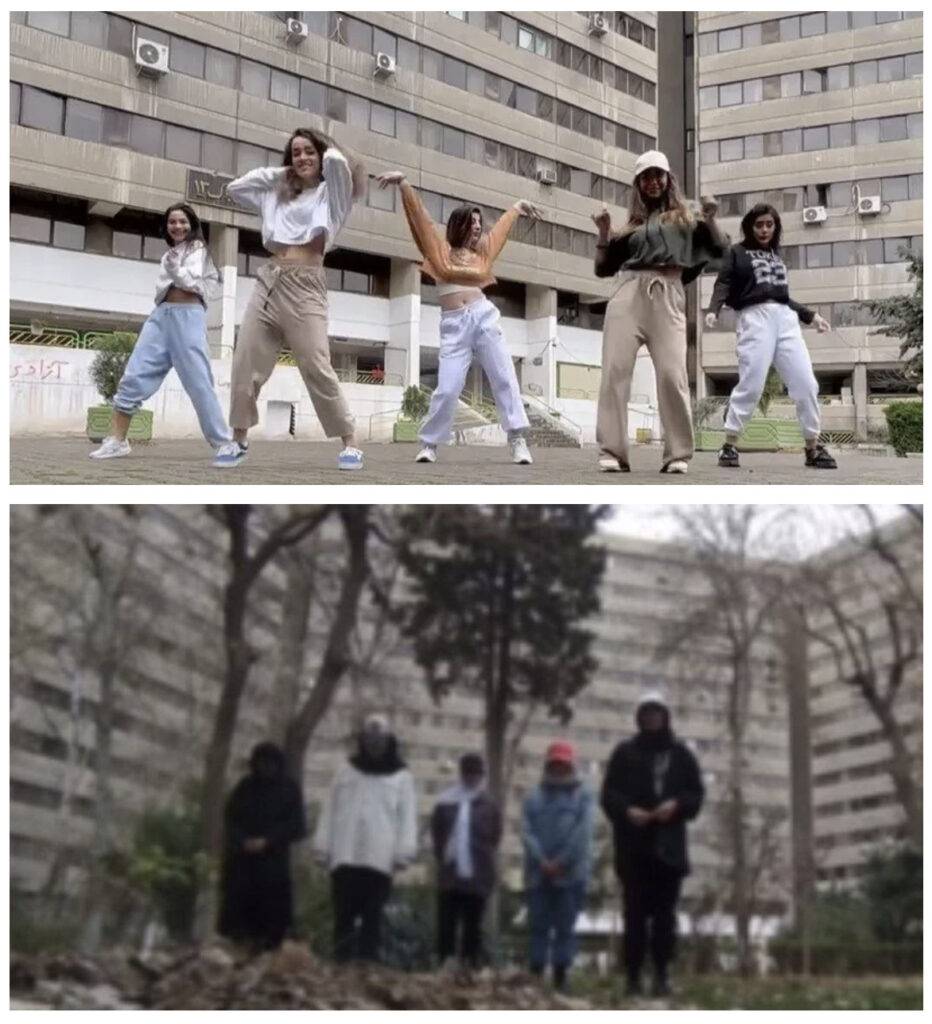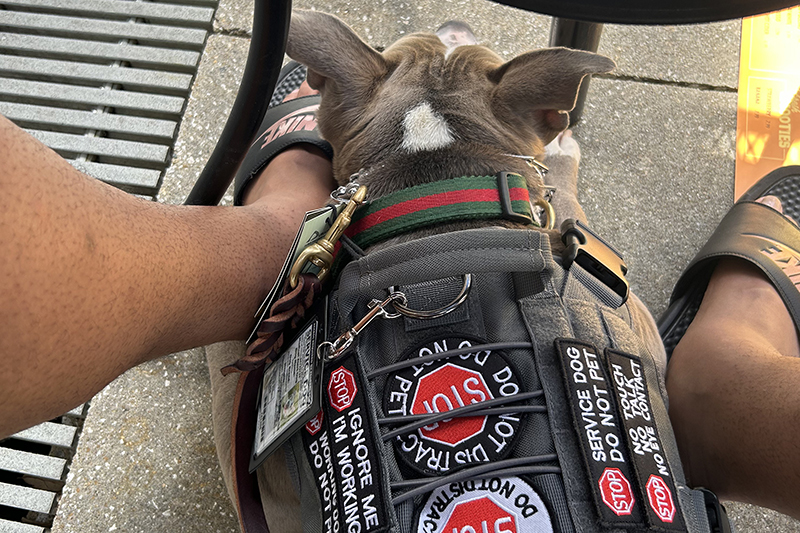Changemakers Circle Gathering in New Orleans April 3 at 8 p.m.
April 3, 2023
Part 3: Azadi (Freedom)
April 7, 2023Sheila Donya Kouhkan
The Spring Equinox is here, which means over 300 million people across the world are celebrating Nowruz. But, for the people of Iran, it is a difficult celebration this year as they approach day 186 of the feminist revolution for freedom.
Commonly known as Persian New Year, Nowruz translates to “new day” and has been celebrated for over 3000 years. I love the thoughtful traditions and symbolism that surround the holiday. We decorate a “haftseen,” a table with items known as the Seven S’s, seven items that start with an S and have different meanings to bring in the new year:
- Sabzeh – wheatgrass or lentil sprouts grown in a dish to represent new birth and growth
- Samanu – a sweet pudding made from wheat germ to represent sweetness and fertility
- Senjed – dried oleaster (or dried fruit of a lotus tree) to represent love
- Seer – garlic to represent medicine and health
- Seeb – apple to represent beauty and health
- Sumac – a crushed spice representing the sunrise and new beginnings
- Serkeh – vinegar to represent age and patience

There are other items traditionally included as well, like coins to represent wealth, hyacinths to symbolize the renewal of nature, sweets to symbolize happiness, goldfish to symbolize life (although it is now more common to use a fake fish instead of real ones which makes my animal lover heart happy), a mirror to represent self-reflection, and candles to represent light.
One of my favorite activities for the Nowruz celebration is Chaharshanbe Suri which is celebrated on the last Wednesday of the year. We jump over fire and say “zardi-ye man az toh, sorkhi-ye toh az man” meaning take my yellow sickly pallor, give me your fiery red. Essentially, we ask the fire to purify and rejuvenate us as we head into the new year. The holiday is filled many other traditions that celebrate the beauty of life, including laughter, dancing, and spring cleaning.

With this holiday full of joie de vivre, one would think Iran’s leaders would represent the same light and zest for life. Unfortunately, that is not the case. As I write this, five Iranian girls from Ekbatan were released from prison after being detained for posting a video of them dancing to “Calm Down” by Rema and Selena Gomez. They were doing what kids do every day on TikTok, but they risked their lives to do it. Within hours of posting the video, Iranian security forces were looking for the girls and, a few days later, they went missing. They returned with an apology video online, which is a trend for the Iranian government: kidnap, arrest, and threaten people and force them to apologize publicly as an example for others. The contrast in how the girls appeared in the dancing video compared to the apology video is stark.
It is not surprising though. The Iranian government has long tried to stifle the joy of its people. In fact, they tried to stop Nowruz celebrations because the traditions had pre-Islamic Republic roots. How can someone look at the beautiful holiday that I highlighted before and see it as a threat? The desire to control people and the things that bring them happiness reminds me of today’s efforts made to silence individuals in the U.S., with book bans to limit imaginations, guns quieting the laughter of children, and the vilification of drag shows.
The same way the Islamic Republic of Iran is not representative of the religion of Islam, neither is it representative of Iranian people. Representation matters, but the Iranian government has resisted inclusive representation through rigged elections and targeted benefits to those in the favor of those who support the regime. That was made extremely evident during the recent COVID-19 pandemic. Government officials put their own needs ahead of the Iranian people. In the first three months after a global pandemic was declared, Iran was said to have 11 percent of cases, the highest number after China and Italy. Government officials in Iran had been warned about the pandemic but refused to acknowledge it, especially due to trade relations with China. Despite reports of rising numbers of a mysterious respiratory illness, the Government continued to deny the pandemic’s existence and has continued to cover up true pandemic numbers to this day. The fact that Iran had recently made headlines after accidentally shooting down Ukraine International Airlines Flight 752 and killing all 176 people aboard didn’t help.
The Iranian government’s denial about the existence of COVID is consistent with their desire to control the narrative. Like a narcissist, the government has a grandiose view of itself and will do anything to squash any contradictory stories or perceptions. This explains why they forced the apology from the Ektaban Girls and also why they neglected to act on reported COVID cases. The insecurity and ego run deep.
The Iranian government refused to act in the interest of its people throughout the pandemic. On January 8, 2021 (exactly one year after Flight 752’s crash), the Iranian supreme leader prohibited the import of vaccines from the UK and US as he deemed them untrustworthy. Instead of providing Iranian citizens with vaccines that were readily available, he opted to politicize vaccine acquisition and chose to work on a domestic vaccine as well as partner with a facility that could provide AstraZeneca vaccines at a high cost. Iran finally received it’s first shipment of vaccines in April 2022, months after being offered vaccines by the UK and US, and thousands of Iranians died as a result of delayed vaccine acquisition. My uncle, Ali, was one of them.
My uncle was devoted to his family and a respectful rule follower. While my father was the rebellious activist of the family, my uncle was the quiet, dutiful son who was kind to everyone. Although I had not seen him in decades due to our inability to travel to each others’ countries, he stayed in communication with me via Instagram, frequently sharing videos of my two favorite things: animals and travel. Although the Iranian government had received vaccines in April, they prioritized vaccinations for their own friends and family or individuals who were willing and able to pay. One rumor was that vaccines were being sold for the Iranian monetary equivalent of $40,000. Of course, my uncle, being the patient and respectful man that he is, opted to wait for his turn. Unfortunately, COVID got him in May and he passed less than a week later.

I never had the chance to have conversations with my uncle as an adult so I don’t know where he aligned politically, but I do know that he did not believe in ruffling feathers. He was patient, loyal, and worked hard to provide for his family. He seemed to co-exist with the Islamic regime, blending in as to not raise any red flags and following the status quo. One would think that the government would value his life as a citizen, but even he was dispensable. A lot of people are afraid of being disruptors for fear of punitive action, but disruption should be viewed in a more mild form: as a course correction or interruption when things go awry. If my uncle and others had disrupted and spoken up about the need for vaccines earlier, he would still be alive. It’s a reminder that we have to be advocates for ourselves and others, and not be afraid of causing some “good trouble.”

Up next- Part 3: Azadi (Freedom)
Disclaimer: All opinions in this blog are my own. Photos have been censored for privacy and safety.




